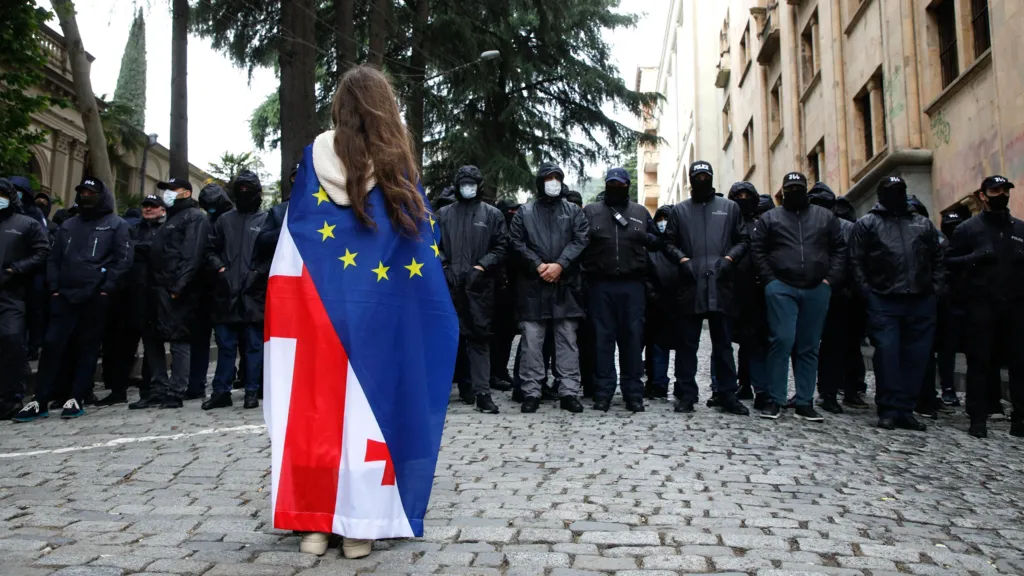In the coming days, Moldova and Georgia face pivotal votes that will shape their future roles in Europe. Both countries, former Soviet republics, have been significantly affected by Russia’s war in Ukraine, adding urgency to their decisions. While Moldova seems poised to solidify its pro-European stance, Georgia’s path remains uncertain due to accusations of democratic backsliding and tensions within the government.
Moldova’s Critical Vote: Securing EU Aspirations
Moldova will hold a crucial referendum and presidential election on Sunday. The referendum seeks to enshrine Moldova’s commitment to European Union membership into the constitution. Polls suggest that over 63% of voters are likely to support this pro-EU shift, which would commit the country to implementing a series of democratic and judicial reforms necessary to meet EU standards.
Incumbent President Maia Sandu, a staunch supporter of the EU, is expected to win a significant portion of the vote, although a runoff is likely if no candidate achieves more than 50%. Her main rival, Alexander Stoianoglo, backed by the pro-Russian Party of Socialists, trails behind in the polls. Moldova’s elections have seen significant interference from Russia, with allegations of disinformation and bribery aimed at swaying the vote in favor of anti-EU candidates.
Georgia’s Parliamentary Elections: A Choice Between East and West?
On the other hand, Georgia is preparing for parliamentary elections on October 26, which have become highly polarized. The ruling Georgian Dream party faces criticism for democratic backsliding and for pushing through controversial laws that echo Russian influence, including restricting foreign-funded media and curbing LGBTQ+ rights. While the government insists it remains on track for EU membership by 2030, opposition forces argue that the country is drifting away from Europe and toward Russia.
The political landscape in Georgia is fraught with tension. Although Georgian Dream’s popularity has waned, opposition parties are fragmented, making it difficult to form a united front. If Georgian Dream wins, its founder, Bidzina Ivanishvili, has indicated a desire to further consolidate power by banning opposition parties. The stakes for Georgia are high, with the potential for EU membership hanging in the balance.
As both nations head to the polls, their votes will resonate far beyond their borders, influencing their relationships with Europe and the broader geopolitical landscape. For Moldova, the road to Europe seems clearer, while for Georgia, the path is filled with uncertainty and internal divisions.











